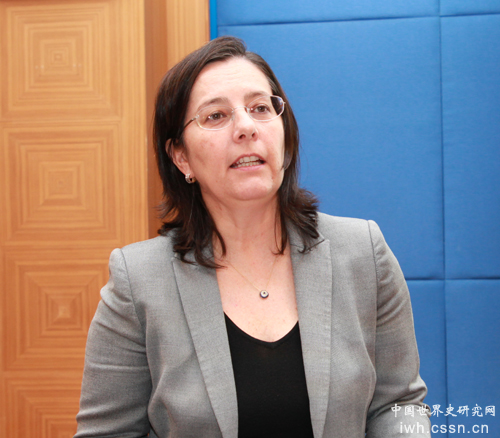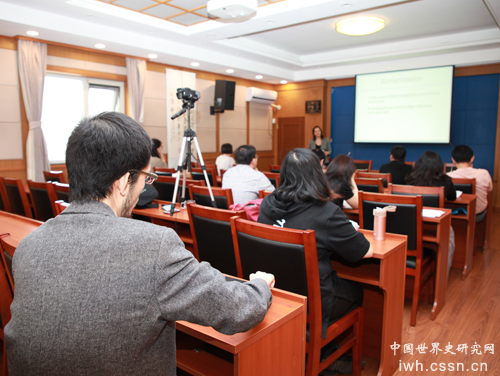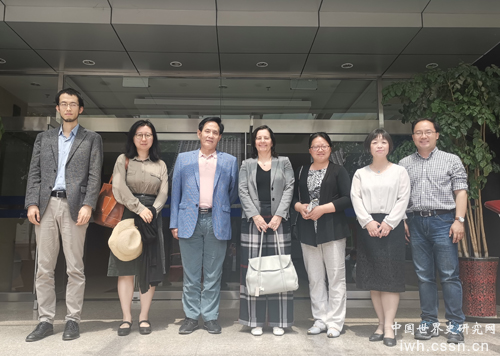Modes of Land Management and Development in Roman Provinces: Key Issues and the Methodology
2019-06-10
Professor Annalisa Marzano of University of Reading Delivered Lecture in IWH



On May the 14th, 2019, Professor Annalisa Marzano (Roman historian, archaeologist, professor of Department of Classics, University of Reading) was invited by IWH to give a lecture on “Modes of Land Management and Development in Roman Provinces: Key Issues and the Methodology”. Researcher Yujuan Hu presided over the lecture.
Professor Marzano introduced her recent discoveries in archaeology and social and economic historical research of Roman villas in central Italy and all over the Mediterranean world. On the basis of the plenty data collected in her archaeology, she revised some traditional opinions and theoretical modes in the research of the economic history of Roman provinces, summarized the common steps adopted by Roman conquerors in the exploitation of provincial lands, and found that the Roman conquer and the establishment of “Roman” farms and villas did not come hand in hand. She inferred that Roman conquerors’ first step to deal with the new available lands was not establishing colonies. Instead, they would focus on building roads and diversion bridges. Archaeological research shows that the provincial cities were generally too small compared to their economic status. Professor Marzano believed that it is because the surplus products, natural resources and financial incomes were sent to the core of the empire and transferred from the hands of provincial elites to the Italy proper. She went on to explain the mechanism of promoting the economic development of the empire through the central government. She believed that we should see the two sides of the coin, realizing that the empire on the one hand grasped local resources and wealth, but on the other hand also brought benefits to provincial residents through basic construction of facilities and the bestowal of Roman citizenship. Finally, she questioned the theoretical mode of “villa economy of slavery” by archaeological data collected in northern Italy, Gaul and Spain. Professor Marzano pointed out that the so-called “villa economy” was not one type of slavery economy introduced by the Roman conquerors into the provinces. The farms and villas were centers for agricultural production directed by the market; and there were no obvious labour division in them.
Scholars of IWH and PhD and postdoctoral candidates of Tsinghua University, Nankai University took part in the lecture. After the lecture, the participants discussed about Roman citizens’ right of inheritance of lands, the relationship between military obligation and division of land among Romans, essential differences between villas and farms, as well as archaeological evidence of the acceptance or resistance of “Romanization” among provincial residents. They also attempted to draw comparison among the modes of conquer and economic developments in different civilizations, such as ancient Egypt, Byzantine Empire, ancient Japan, the former and later Han Empires and ancient Rome.
